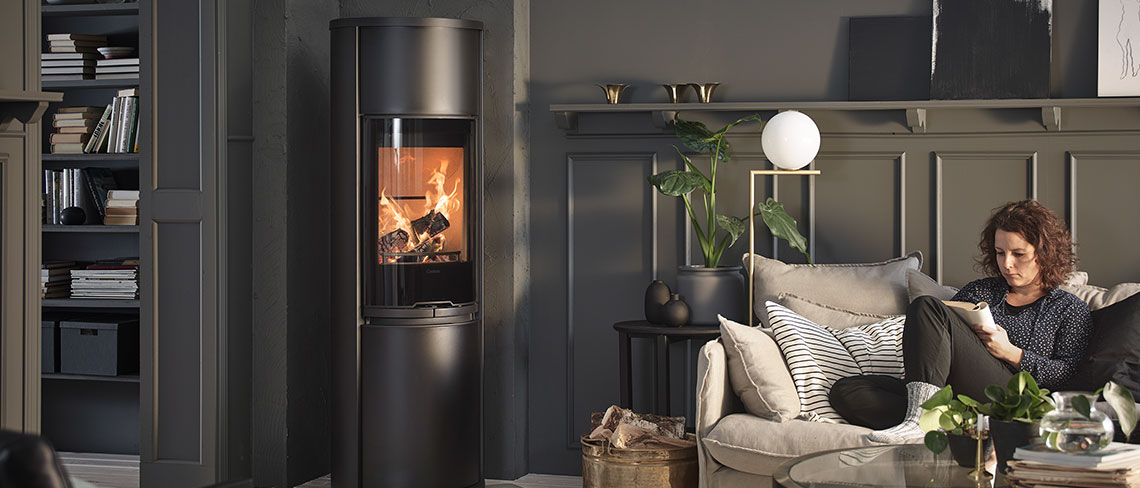The Post-Pandemic Wellbeing Shift: A Guide to the New Wellness Rules

Over the last 18 months life has changed immeasurably, and we’ve found ourselves adapting and re-adapting to new iterations of ‘normal’. It’s unsurprising that with these changes, our approach to everyday life and always-on-the-go lifestyle has also shifted. Similarly, attitudes to and use of our homes have also adapted, from the design and interiors to how we utilise the space, with a focus on relaxation, wellness, and creating a sanctuary.
Catharina Björkman, Scandi lifestyle expert at Contura says: “Being busy is no longer the marker of success for Brits, and far from being concerned about potentially ‘missing out’, we’re instead more concious of using our downtime to invest in our health and wellbeing.
“It’s a unique moment in history and undoubtedly a turning point in the western culture of being always ‘on’. We’re now seeing the value in the importance of rest, relaxation, boundaries and downtime as opposed to dismissing these needs as selfish indulgence.
“One area in particular that has felt the effects of this sizeable shift, is our relationship with our home. Many Brits have relocated or are considering moving from the cities to commuter towns or suburbs, with the aim of making the most of convenient commuting locations coupled with the enjoying the benefits of small-town living and easier access to green spaces.”
Read on for Catharina’s guide to the post-pandemic wellness rules and how these are reflected in our homes…
Wellness is a priority, not an afterthought
For too long the idea of living life in the fast lane, surviving on as little sleep as possible and feeling burnt-out were markers for success. The pandemic and subsquent national and regional lockdowns has led to a mandatory slow down, and forced us all to focus on taking better care of ourselves.
And this isn’t simply by prescribing to the idea of what constitues wellness – activities such as meditation, yoga, journalling, cold water therapy and massage – but the back-to-basics building blocks for really optimising our health. Feel-good factors include getting a good night’s sleep, eating healthily, drinking at least two litres of water a day, daily movement, and access to fresh air and green spaces.
If the last year has taught us anything, it’s that the need for social interaction is another key pillar of health – social connection is essential for every aspect of our wellbeing, impacting both emotional and physical health, and preventing loneliness.
Small-town living & working
It’s been well documented that, driven by the pandemic, people have flocked from the cities to the suburbs and further afield to the countryside or coast. This urban exodus has been spurred on by the Stamp Duty freeze, a desire for more space – both indoor and out – and an increasing awareness of the importance of access to the natural environment.
With flexible working and remote working undoutedly a factor enabling this movement, small-town living has boomed. Community high-streets, independent coffee shops and bakeries, and supporting local businesses has become more important too, as we seek all-important connections within our communities. And, of course, being able to still commute to the office and cities when required is an added bonus.
Simplicity in all forms
Focusing on wellness has meant stripping life back to its simplest terms – cutting out the clutter, unnecessary distractions, noise and stresses – and this has extended to our homes. Pared-back, minimalist design, multi-functional furniture, and a focus on quality over quantity ensures a sanctuary-like home that offers the calming environment many of us crave during turbulent times.
As a result, consumers are looking for home products that are simple, practical, and require little maintenance, without scrimping on style or aesthetics. Scandi design and investment pieces such as a wood burner, decent mattress, hardwood flooring or wooden shutters, will not only stand the test of time but create a cosy atmosphere that can be enjoyed time and again by family and friends sitting together.
For more information, visit www.contura.eu
-Ends-
Notes to editors:
- Rooster PR will coordinate comment, interview and profile opportunities for Contura UK Country Manager, Phil Wood.
- The Contura PR team will also arrange visits to the nearest Contura Design Centre dealerships or the Contura showroom in Doncaster to see the product range.
For further press information, please contact:
Anna Nyman | Elsa Findlay | Jo Kendall | Julie Aguilera
Rooster PR
T: +44 (0)20 3440 8930
E: Contura@Rooster.co.uk
About Contura:
Contura is Europe’s leading manufacturer of wood burning stoves, offering an extensive range of classic and contemporary wood burners; from traditional insert stoves suitable for existing fireplaces, to freestanding statement models made with innovative materials such as soapstone.
Starting at £1,095, Contura stoves are premium yet affordable. Award winning, timeless Swedish design means the products complement or enhance any style of home, whilst also offering outstanding performance, maximum efficiency, practicality, and ease of use.
Designed and assembled at the factory located in Markaryd, Sweden, and manufactured to the highest standards, Contura stoves are highly energy efficient, offering powerful convection, superior combustion technology and clean burning systems. Currently, 95% of Contura stoves are DEFRA Clean Air Act exempt and thus approved for use in Smoke Control Areas.
Contura stoves can be purchased through a network of 165 independent retailers nationwide.
Contura is part of the NIBE group, a Swedish manufacturing company producing world class solutions in sustainable energy across Europe, North America, Asia and Australia.
Contura is a founding member of the Stove Industry Alliance (SIA) in the UK.
For more information, please visit www.contura.eu